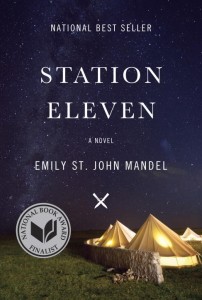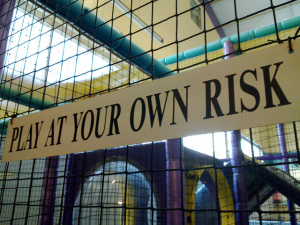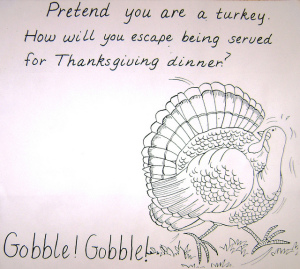
Be creative…now! CC image Eye to Eye courtesy of Tambako the Jaguar on Flickr. Some rights reserved.
Being creative and being goal-oriented are two different things. This statement may sound like a resounding example of the obvious, but for me this has been the discovery of week.
I start my writing residency soon. Early on after being accepted, I had grand plans for what I would do in preparation for the residency. I would get the manuscript ready in myriad ways: writing first drafts of chapters and scenes; research; organization; the digitization of all my notes. In short, I have not met these goals. With the impending “deadline” of my departure on the near horizon, I have found myself in a state of agita about my failure to accomplish these tasks.
But really, who cares? I mean, this isn’t a homework assignment. No one at the residency is going to approach me with a checklist, before or after my residency begins, and ask, “Did you do X, Y, and Z before coming here? Have you completed A, B, and C while you were here?” The whole point of a writing residency is time and space. The work is the writer’s own.
The muse is a fickle flirt. Courting her is akin to courting a cat: you never know quite where you stand, or whether you will be met with purring affection and head butts, or raised hackles and a clawed swipe or bite. We receive contradictory recommendations on how to make the muse love us.
These include: Set a regular schedule for writing, and stick to it. Be ready for inspiration whenever it strikes you—carry a notebook, computer, or voice recording device wherever you go (this piece of advice is especially nefarious for overachievers like myself, who see bringing the notebook with them everywhere as a challenge to, you know, write in it. Accomplish something!). Keep a pen and paper by your bed. Allow yourself to go about your everyday routine without thinking of writing. But most of all, DON’T FRIGHTEN THE MUSE AWAY BY BEING TOO NEEDY.
Ah, goals. Goals to be ready for Optimum Creativity, goals to execute specific steps, goals for deadlines. Goals are great, and meeting them is fun and useful, of course. But to be an absolutist in the face of writing goals (they must all be done and they must ALL be done exactly right) is a recipe for muse disaster.
As @joannechocolat pointed out in a recent tweet and blog post, this is all-or-nothing thinking. If you do this in writing, you might also be absolutist in other areas of life. Take note. You won’t take well to not meeting your word count and you will be unhappy when your writing plan doesn’t go to plan. I speak from experience.
Let’s take a moment to visit that friend to all writers, the dictionary. Merriam-Webster has this to say about a goal:
: the end toward which effort is directed : aim
Notice the entry doesn’t say, “the achievement of that end.” The emphasis lies on the action or aim, not the result.
While checklists are great, don’t let them rule your life. Word counts are useful targets, but if you fall short by, say, 235 words today you don’t need to add exactly that many on to tomorrow’s count, to “make up the difference.” Deadlines are fine… when you have finished your draft and are talking to an editor or a book designer. Deadlines for your draft are not fine. Deadlines and creativity don’t mix well.
Set the stage as well as you can, but allow yourself to have fun improvising. If you lose sight of the joy in play, you’ll lose sight of why you started this endeavor in the first place. Note to self.




